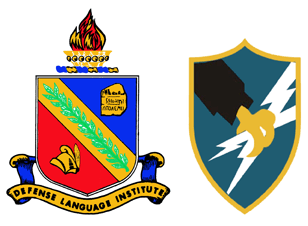 |
all the countless Kevins and Gabbies, Fast Eddies and Megs—not just in Berlin, but around the world—who for over forty years fought the secret Cold War for one tour and then went home.
Having trouble answering this question from your kids, grandkids, brothers, sisters and significant other?
Read what T.H.E. Hill had to say in an interview with Wes Britton of SpyWise.net.
Q: Did anyone ever encourage you to include more Bondian elements in your book?
When the manuscript for Voices Under Berlin was making its way around literary agents in search of someone to represent it, one agent said that the book was very Helleresque, but that it would sell better with more sex and violence. That wasn't, however, the book that I wanted to write. I wanted to write a book that was based on the reality of the mind numbing boredom of a Sunday mid while you're waiting for the target's loose lips to sink a ship.
I wanted to record what it was like to fight the Secret Cold war for posterity. When their children ask "What did you do in the Cold War?," most Secret Cold War veterans, have to say something trite, like "If I told you, I'd have to shoot you." I wanted to give voice to some of their stories so that they would not disappear when the generations of Kevins and Fast Eddies who are sworn to silence shuffle off this mortal coil. Voices Under Berlin may not be exactly the story that each and every one of them would like to tell, but it is close enough so that people who fought the Secret Cold War in places other than Berlin say that they felt right at home while reading it. I wanted Secret Cold War vets to be able to answer their children and grandchildren with: "I can't tell you exactly, but why don't you read Voices Under Berlin?
And I wanted to entertain people with what I was writing.
Read the whole interview here.
ASA lives in the hearts and minds of those who served in it. Help keep it alive.
What others think about preserving
the tales of the Secret Cold War
• Writing at Amaon.com, Dennis M. Worlow says:
Thanks to the author of Voices Under Berlin and the other reviewers for sharing. It is especially interesting to hear from those who were actually there in Berlin during those days of the Cold War. It is important that those of us who were there share our stories even if partially fictionalized.
Similar to the shared experiences of combat veterans, our stories are difficult for those who were not a part of it to comprehend. No, we were not in combat, but that potential was always there. The Berlin that we knew was a hotbed of tension and intrigue. Stressful incidents and standoffs were common. For the most part, we were considered expendable. For those reasons, Berlin was also known as a party town to us. Stress and tension had to be relieved some way.
Those of us who were there either gathering military and political intelligence or supporting the efforts of those who did have shared experiences that until recently were known only to a few. Even then, each of us had only a limited view of the bigger picture. We were sworn to keep exactly what we did and where we did it to ourselves for security reasons. We were not even supposed to share information about our work between ourselves unless there was "a need to know" and then only within a secure facility.
That is why the creation of Voices Under Berlin and other related books is a good idea. It affords us the opportunity to fill in some of the gaps or to refresh fading memories. Perhaps there are still some memories better left untold and allowed to fade, but there are other memories that need to be collected and told. Those days were important in the formation of the rest of our lives. They were also important to our nation's security.
Perhaps this and similar stories will inspire more books that can be handed down to posterity before we are all gone and our stories are lost entirely. Each of our contributions however great or small was important to the continuation of our nation during a difficult period in history and for the most part should no longer be shrouded in governmental secrecy. Granted, some secrets should remain secret, but now that much of it has been declassified, the stories of our contributions should be made known.
To those who served in the various "security agencies" in Berlin, and especially to those one-time enlistees who served in the Army Security Agency, an invitation is extended to come join us at the Yahoo Group for the 78th ASA SOU and share your remembrances of those days before they fade into oblivion. There are also picture and documents to help jog your memory. The author of Voices Under Berlin is a member. Who knows, your story might help to inspire more books and you may even find some old friends within our growing ranks.
Read his whole review here.
• For another "Thank You" for the Veterans of the Secret Cold War from the Air Force Security Service perspective, I invite you to read the article written for Veterans' Day 2000 by Don Lehmann on his VIVA USAFSS website. It is of particular interest, because it could have just as easily been written about ASA. The jargon may be a bit different, but the sentiment is the same.
While you are there, please also take the time to read the essay "A Call to Pens" by T.H.E. Hill.
